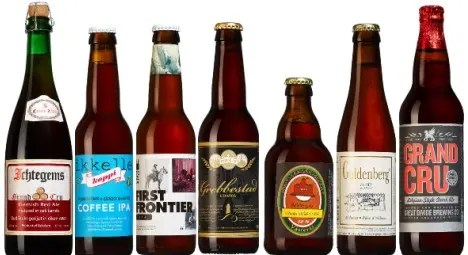The reform, which permits direct sales by small-scale distilleries, vineyards, and breweries, is the first of its kind since the establishment of Systembolaget, the state-run retail monopoly, in the early 20th century.
Under the new legislation, craft producers will be allowed to sell limited quantities of alcohol directly to visitors on-site, but with strict conditions. Anna Anerfält, CEO of Norrtälje Bränneri, a family-run distillery north of Stockholm, welcomed the development while emphasising the continued importance of responsible consumption.
“The whole event has to start off with a warning about the risks of drinking alcohol,” she said. “I’m not sure it will affect the sales of our product that much, though, because each visitor is only allowed to buy one bottle.”
The direct sales will be limited. Distilleries may sell one 0.7 litre bottle per visitor per day following a paid tour between 10 a.m. and 8 p.m., while vineyards and breweries may sell up to 3 litres. The measure is designed to support local producers and boost regional tourism, particularly in rural areas, while maintaining Sweden’s overarching public health goals.
A 2021 government committee projected the reform would increase total alcohol sales in Sweden by approximately 200,000 litres per year — less than 1% of the volume sold annually by Systembolaget. The Swedish government has committed to a six-year review period before deciding whether further changes will be made.
The move has reignited debate over alcohol policy in Sweden, a country with a historically cautious approach to alcohol. In 1922, Swedes narrowly voted against introducing prohibition. Since then, the state has maintained a firm grip on alcohol distribution through Systembolaget, which was preserved even after Sweden joined the European Union in 1995, under a special exemption to EU single market rules.
Critics of the reform fear it could set a precedent that weakens Systembolaget’s unique role. “The problem isn’t farm sales in itself,” said Lucas Nilsson, chairman of the IOGT-NTO, Sweden’s largest temperance organisation. “Rather we think that it threatens Systembolaget’s monopoly. Ultimately, it could mean we have to dismantle Systembolaget.”
The World Health Organization has frequently cited Sweden’s restrictive alcohol policies, including high taxation and limited retail hours, as contributing to lower consumption rates and fewer alcohol-related health issues in the Nordic region. The potential erosion of these policies is a concern for many municipal officials.
“Increased alcohol consumption leads to more social problems,” said Alexander Ojanne, head of Social Affairs and Public Safety at Stockholm’s municipal council. “We want to reduce those social problems as much as possible.”
Under the law, local breweries in Stockholm and other urban areas will only be permitted to sell alcohol during Systembolaget’s regular opening hours. This means that evening sales, Saturday afternoons, and all of Sunday are excluded.
Despite these limits, the reform has been broadly welcomed by producers, particularly in rural parts of the country where tourism is a key source of income. Sweden’s craft alcohol sector has grown significantly in recent years, but producers have long argued that the existing framework placed them at a disadvantage compared to counterparts in other EU member states.
The government has framed the changes as a narrowly defined pilot initiative. Ministers stress that the objective is not to liberalise alcohol sales wholesale but to allow modest local exceptions that reflect changes in Sweden’s rural economy and visitor trends.
Nevertheless, concerns remain that the change could prompt scrutiny from Brussels. Sweden’s exemption for Systembolaget under EU competition law is contingent on the monopoly’s functioning being “non-discriminatory” and focused on public health. Some experts warn that allowing producers to sell directly to consumers, even on a small scale, could be interpreted by EU regulators as a departure from those principles.
For now, however, producers like Norrtälje Bränneri are proceeding cautiously and optimistically. Anerfält believes the real benefit of the reform lies not in increased sales, but in allowing visitors to experience the production process and connect more directly with Swedish craft traditions.
“I think it’s a good step forward — carefully managed, limited in scope, but important for the future of small producers like us,” she said.
As the government prepares to monitor the impact over the coming years, the balance between supporting entrepreneurship and safeguarding public health remains at the centre of Sweden’s alcohol policy debate.
Post Views: 688
